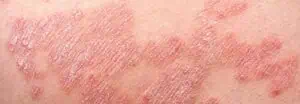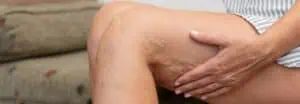
Guide to Fall Skin Conditions
Autumn, with all its stunning colours, also brings some challenges for our skin. As the air gets cooler and the leaves turn vibrant shades, it’s
Not sure about your condition? Get in touch now, there is no reason for you to wait.
Autumn, with all its stunning colours, also brings some challenges for our skin. As the air gets cooler and the leaves turn vibrant shades, it’s a reminder that we’re steadily approaching winter. Keeping your skin glowing and healthy during this transition from summer to the colder months can be tricky. But don’t worry – this […]
October is Eczema Awareness Month. For individuals living with eczema, you will be all too familiar with the trials of handling this skin complaint. It’s our mission throughout October and beyond to educate, support and empower you by delivering invaluable insights on its origin, available therapies and practical coping strategies. In this all-encompassing guide we […]
Varicose Disease Awareness Month focuses on raising awareness about varicose veins, a common but often ignored condition affecting millions globally. This September, we’re highlighting the importance of early detection, available treatments and lifestyle changes to effectively manage varicose veins. By increasing awareness, we aim to encourage individuals to prioritise their vein health and seek professional […]
Observed every August, Psoriasis Awareness Month is a dedicated period for spreading knowledge about psoriasis – a persistent skin disorder affecting millions globally. The campaign is centred around dispelling misconceptions about psoriasis, promoting early diagnosis and advocating for effective treatment strategies. For persons living with psoriasis, the month is a beacon of unity and assistance. […]
Unleashing the Potential of Sunscreen Ever wondered why the SPF label is so omnipresent on skincare products? The SPF world is a labyrinth for skincare newbies and wellness enthusiasts. We’re here to guide you. In this guide, we’ll delve into the reasons for SPF being an essential skincare product, the process of selecting the right […]
June is globally recognised as Acne Awareness Month – a period committed to comprehending and tackling one of the top skin disorders affecting people everywhere. Acne Awareness Month reminds us of the necessity of learning, support and availability of effective treatments for those battling acne. This month works towards dispelling myths, disseminating knowledge about causes […]
May is not just a month of blooming flowers and warm weather—it’s a time of heightened vigilance against a silent but deadly foe to our skin health. Melanoma Awareness Month is an annual clarion call, not only for cancer survivors but for all of us to champion the prevention and early detection of melanoma, the […]
April marks Rosacea Awareness Month, an ideal time to highlight this frequently occurring yet routinely misunderstood skin condition. For the numerous individuals around the globe affected by rosacea, remember that you’re not alone in your struggle. Rosacea is a chronic inflammation disorder, most notably causing facial redness and sometimes resulting in bumps similar to pimples, […]
Ignoring your feet can be dangerous. However, it’s not just about having a stylish and comfortable pair of shoes – it’s the health of your feet that truly matters. One of the most common and painful foot conditions affecting millions each year is the ingrown toenail. This seemingly minor issue, if left untreated, can escalate […]
Table of Contents As the weather gets colder, the promise of cozy moments gets closer. But the winter season also brings unique challenges for our skin, body, and overall well-being. For some people (especially those with sensitive skin), winter is the time for cracked lips, oily skin, and dehydrated bodies. If this sounds relatable, read […]
Acne is one of the most common skin conditions, affecting a significant percentage of the population. Despite its prevalence, few people know that June is acne awareness month. This presents a perfect opportunity to delve deeper into the condition and answer some of the burning questions that most acne sufferers have. What is acne? What […]
Do you have unsightly or uncomfortable leg veins? While some leg veins are harmless, varicose veins can cause symptoms like pain, swelling, itching, and cramping. These threats can be mitigated with early detection and timely action, so don’t wait to be seen by your GP or in the NHS, be seen quickly by one of […]

Autumn, with all its stunning colours, also brings some challenges for our skin. As the air gets cooler and the leaves turn vibrant shades, it’s

October is Eczema Awareness Month. For individuals living with eczema, you will be all too familiar with the trials of handling this skin complaint. It’s

Varicose Disease Awareness Month focuses on raising awareness about varicose veins, a common but often ignored condition affecting millions globally. This September, we’re highlighting the
Potential Phishing Email Alert
We are aware that some customers may have recently received a fraudulent phishing email claiming to be from one of our clinics. The email asks recipients to click a link to view a document, which leads to a fake website that requests login details to be entered. Examples of the message are below:

If you have received this email, please do not click any links within it. If you have clicked on a link or entered any login details, we recommend that you change your password immediately, and monitor your accounts for any unusual activity.
We take data security very seriously, and can confirm that none of your personal data held by our clinics has been lost or compromised.
For further advice and guidance about your online safety, we recommend visiting the National Cyber Security Centre or Action Fraud websites. Both provide useful information on staying alert to phishing emails, including:
Should you have any questions, or require further assistance, please email [email protected].